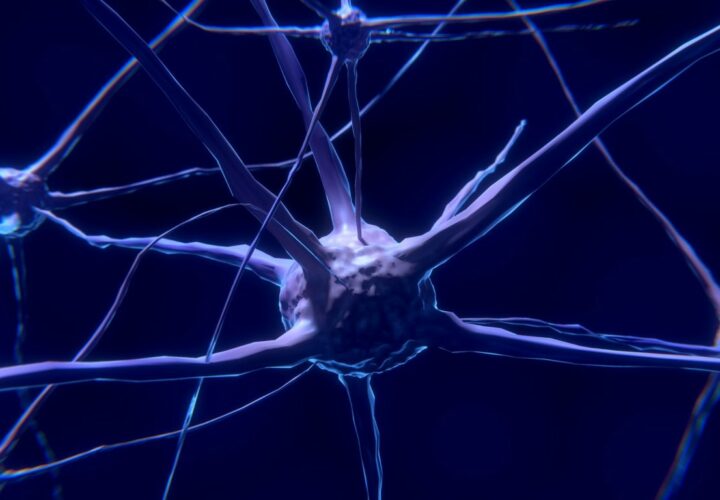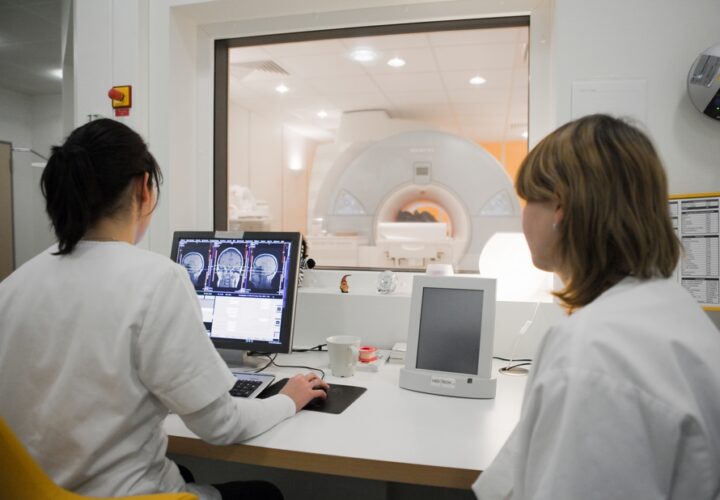In a 2019 study, researchers pinpointed an enzyme that could potentially serve as a new drug target for the disease.
Beta-amyloid plaques are one of the most studied aspects of the development of Alzheimer’s disease. But as knowledge about this incredibly complex disease grows, scientists are expanding their focus to other biological mechanisms that could explain how the condition unfolds in the brain. In a 2019 study, researchers at the University of Queensland pinpointed an enzyme that could potentially serve as a new drug target for the disease.
The study concentrated on the enzyme dPI3K, which was linked to both plaque accumulation in the brain as well as inflammation. In past research, inflammation has been identified as one major culprit of Alzheimer’s, and some researchers have examined how tackling inflammation could potentially be a treatment for the disease.
Targeting the dPI3K Enzyme in Alzheimer’s
In the study, the researchers removed the dPI3K enzyme in mice with Alzheimer’s disease. They discovered that once the enzyme was eliminated, both plaques in the brain and inflammation were reduced.
“In nerve cells, the enzyme dPI3K produces a toxic peptide which accumulates into plaques in the brain of Alzheimer’s disease patients, causing havoc,” Dr. Ramón Martínez-Mármol, author of the study, said in a press release. “Our study shows that the enzyme is also involved in the secretion of one of the most important signaling proteins involved in inflammation.”
Interestingly, the mice that had the enzyme removed showed no signs of Alzheimer’s disease.
“We were surprised to find that having none of the enzyme in their system, the offspring of this cross didn’t have Alzheimer’s disease at all — the mice were completely normal with intact memory,” Martínez-Mármol said. “These offspring still produced toxic peptides but for some reason they did not accumulate into plaques; we found no plaques in the brains of these animals and no inflammatory response at all.”
A Potential New Drug Avenue
Seeing the results in their study from knocking out the enzyme and reducing the development of Alzheimer’s in mice, Martínez-Mármol and the research team next turned their focus to a potential new avenue for a drug. They found that a leukemia drug that already targeted the dPI3K enzyme was actually effective in reducing some of the toxic peptide in the cells of mice with the disease. However, the researchers would still need to test this drug beyond cells — in animals and then humans — in order to see if it has any real potential.
“The challenge of treating Alzheimer’s disease in mice or people rather than isolated cells is that any treatment has to cross the blood-brain barrier,” Martínez-Mármol said.
More and more, scientists are realizing just how complex Alzheimer’s disease is, Martínez-Mármol notes. And that’s why he hopes research will continue expanding beyond beta-amyloid and into other biological mechanisms in the brain and body.
“Most treatments focus on only one aspect of the disease; we want to change this point of view and focus on developing therapies that touch different aspects of the disease, like the combined approaches used to treat cancer,” Martínez-Mármol said. “Alzheimer’s is a complex disease that involves more than nerve cells, so let’s try to develop drugs that will work on both the brain and the immune system.”




My wife is 72 and showing signs of dementia, which may be Alzheimer’s. Our family doctor believes it is Alzheimer’s. She has no past family relationships with the disease. Her late husband died from the disease, and she has lead support groups for families with loved ones with the disease, so she is well aware of the symptoms. I know it is concerning her and I am heartbroken watching her decline, so any information concerning the disease I would welcome. I’m praying for a cure and soon. Right now I’m clutching at any straw that I can find that might help me save my wife.
Chuck Bermele